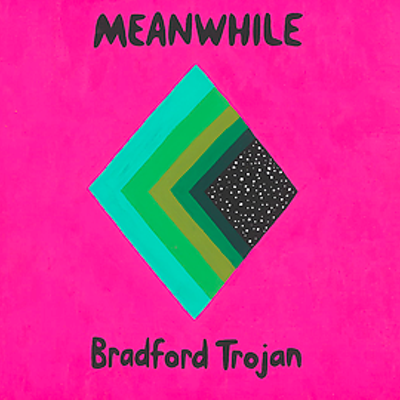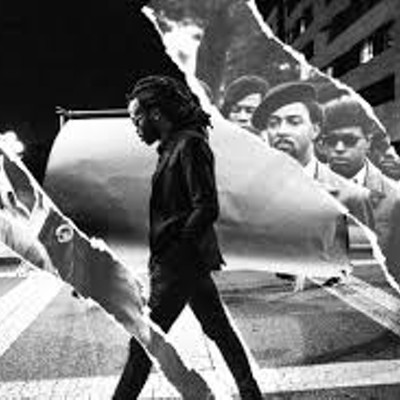Boreas plays pop music, but with a secretly subversive twist. A strong background of formal musical training leads the band into what they call an "uncanny valley of pop music."
"We sound really close to music that people know, but there's just something a little weird about it," says singer-guitarist Sam Golden.
The 2012 TAMMIES Up-And-Coming Artists of the Year, Boreas consists of Golden and Evan Casler on guitar, Bob Hanshaw on bass, and Seth Vietti on drums. The band cites influences as varied as Animal Collective, the Beach Boys, Radiohead and Paul Simon as contributing to the band's sound, which is catchy and full of four-part harmonies, but at the same time dense and complex musically.
Golden said the aesthetic he strives for when writing music is to be "accessible but not ordinary," which is how Leonard Bernstein described Beethoven's Symphony No. 9.
"All of us just like making music that we like. We're not making music for anybody. It's objectless, and we're very happy people like it. But we're not playing for people; we're playing for ourselves," Golden says.
It's an attitude very much in line with what the band sees as the artistic spirit of Tucson, an ego-less approach of creating art, whether or not anybody will ever see it.
"It's not there to be marketed; it's there to celebrate one's own creativity," Casler says. "If we can toe that line of sharing our art, while still creating art to celebrate what we feel inside creatively, that's a great balance to have. And that's a genuine Tucson spirit."
Boreas grew out of Grandpa Moses, a folk band that Golden and Vietti put together in high school, later recruiting Hanshaw to play bass for the 2007 Arizona Daily Star Battle of the Bands, where they won the Popular Choice Award. When they began recording an album, the band morphed into Boreas, taking the name from one of their songs. (They then changed the name of that song so it wouldn't serve as a theme song.)
Boreas put in a full summer of practicing and songwriting every day, then split up for college, with Golden at Arizona State University, Hanshaw at the UA, and Vietti "bouncing around a bit." But they knew Boreas wasn't done.
"We had these tentacle groups playing, trying to have a Boreas group in all the cities we lived in," Golden says. "The time was very productive, not just immediately for the band. We were all studying music."
Golden and Vietti returned to Tucson in 2011, and the pieces were in place for Boreas to start again.
"Summer 2011, we just slammed together an EP in two weeks so we could have something to sell, and went on tour," Hanshaw says. "Then we came back, and we were totally tight from playing 14 shows in 17 days."
That's when Casler joined the band to replace a temporary touring guitarist. At first merely "hired muscle," Casler eventually carved out his own niche to balance the other three musicians.
"It became apparent we needed a fourth person to play the songs live. We'd been writing songs that were so centered around studio work, adding things piece by piece, and we ended up with songs that were bigger than we could play live," Vietti says. "It's definitely a product of the four of us. We each have very different inspirations and influences, and kind of smash them all together in practices."
Boreas songs tend to start with Hanshaw's lyrics, which he'll pass to Golden—context-free, with no melody or chords or musical ideas at all—to start with. Golden works on the music from there, bringing ideas to the band in practice.
"The nice thing about this process we have going on right now is before, at least for me, it would take one or two months to write a song I was happy with. But when Bob gives me lyrics, I could crank out a song in a day or two. There's hardcore synergy going on with the songwriting process," Golden says.
Though Golden writes roughly 80 percent of the band's music, and Hanshaw puts together a similar portion of Boreas' lyrics, the process doesn't seem to work in the opposite direction, at least not with the same ease.
"For some reason, it takes me a really long time to write lyrics when Sam brings me a song without words, even though I really like doing that," Hanshaw says. "It's just hard to shoehorn natural-sounding language into an existing musical structure."
In the space of a year, the band has gone from struggling to reproduce its recorded material live, to embarking on a new album that, for the first time, will represent the excitement of their quickly evolving live show.
"We are at the very beginning of recording a new album, and we really want this one to capture the live experience in a way that none of our other stuff has," Hanshaw says. "The stuff we have recorded, while it's good and I stand by it, exists only in the studio. There's something about our live show that I really just love, being able to totally explode into the music."
The band plans to spend the fall, winter and spring writing new songs, honing their current material onstage and scheduling sessions with a producer, recording full-band live takes as much as possible.
"I describe our first album and two EPs and singles as kind of the juvenilia. This is opus one. This going to be our first real mature statement as a band," Golden says.
Boreas' task, from now until May, is to write and perform, pushing and pulling their songs in different directions and testing them out live, letting the songs evolve into what's best.
"There are a lot of songs that we're just generating now that we want on the album. The best way for us to figure out what those songs are supposed to sound like is to play them live, experiment, and see what kind of response we get," Casler says. "We definitely feed a lot on having an audience there and having to be performers. That's what we are onstage, just children playing in the sandbox, and I'm glad that it seems to resonate with people."






